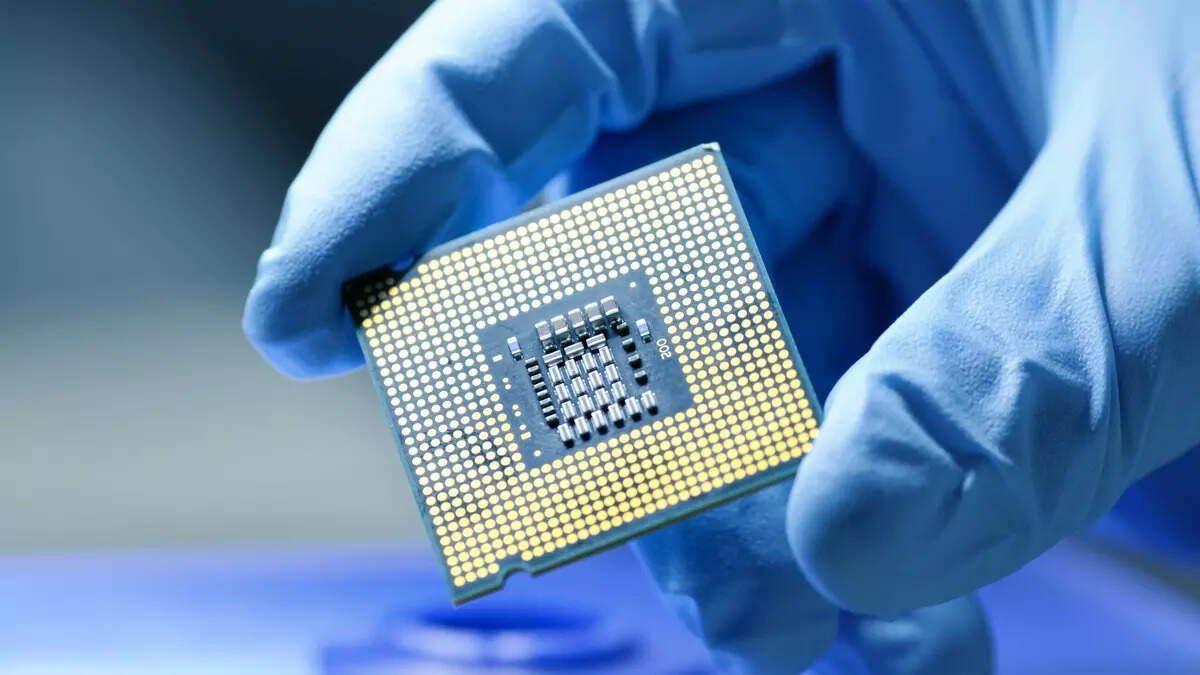
New Delhi: As part of efforts to create a talent pool of semiconductor professionals in the country in view of the significance of the industry, AICTE on Saturday launched the curriculum designed for two new programmes including a B Tech degree.
These courses are expected to provide a variety of employment roles for Indian students in global and Indian companies.
Union Minister for Electronics and Information Technology, Ashwini Vaishnaw, said Prime Minister Narendra Modi approved the Semicon India programme in January last year.
“In consultation with the semiconductor industry and all the experts, a curriculum has been developed and today AICTE within the Ministry of Education has launched two new programmes,” he said.
“First is a BTech program in semiconductors and second is a diploma program in semiconductors. These two programs will help us create a very good semiconductor talent throughout the engineering ecosystem. I would encourage the youngsters, students and industries to participate in the programmes,” he added.
The All India Council for Technical Education has launched curriculum designed for B. Tech (Electronics VLSI Design & Technology) and Diploma in IC Manufacturing
The courses shall be uploaded on the AICTE portal.
Any number of AICTE-affiliated colleges, universities and technical institutions may opt to offer these courses.
VLSI (Very large-scale integration) sector is a high-paying industry and it will create an environment for semiconductor ecosystem, an official release said.
Prime Minister Narendra Modi has said that semiconductors are playing a critical role in the world in more ways than we can imagine.
“It is our collective aim to establish India as one of the key partners in global semi-conductor supply chains,” he has said. He also noted that the country is investing heavily in skilling and training young Indians for the needs of the 21st century.
“We have an exceptional semiconductor design talent pool which makes up to 20 per cent of the world’s semiconductor design engineers. Almost all of the top 25 semiconductor design companies have their design or R&D centres in our country,” he said.
Semicon India programme (with a total outlay of Rs 76,000 crore) is aimed at the development of semiconductor and display manufacturing ecosystem in India.
The programme provides for financial support to companies investing in semiconductors, display manufacturing and design ecosystem.
In line with the Semicon India programme, the Chips to Startup (C2S) programme aims to train 85,000 engineers (bachelors, masters and research-level combined) qualified in ESDM disciplines over a period of five years. Necessary tie-ups with 82 technical education institutes have been made.
IIT Hyderabad had launched B. Tech (Electronics Engineering) specialization in IC Design and Technology last year.
The B.Tech in Electronics (VLSI Design and Technology) will include Introduction to IC Design and Technology, digital systems labs, demiconductor device fundamentals, Analog Electronics, Introduction to CMOS processing, Introduction to VLSI Design, Analog IC Design, Statis Timing Analysis, fabrication and characterization lab and Physics of Electrical engineering materials.
The Diploma in IC Manufacturing will include Introduction to VLSI Fabrication, semiconductor fab familiarisation, electronic devices and circuits, clean room technologies, semiconductor technology equipment maintenance, allied activities for foundry like safety protocol for foundry, vacuum technology, Industrial automation, Semiconductor packaging and testing, electronics system assembly or product design and renewable energy technologies.
The Prime Minister had expressed optimism after Gujarat government signed an MoU of Rs 1.54 lakh crore with Vedanta-Foxconn group for the manufacture of semiconductor and display fab in September last year.
The Prime Minister also pointed out that the investment will create a significant impact to boost economy and jobs while also help in creating a huge ecosystem for ancillary industries and thereby helping our MSMEs.
“This MoU is an important step accelerating India’s semi-conductor manufacturing ambitions. The investment of Rs 1.54 lakh crore will create a significant impact to boost economy and jobs. This will also create a huge ecosystem for ancillary industries and help our MSMEs,” he had said in a tweet.